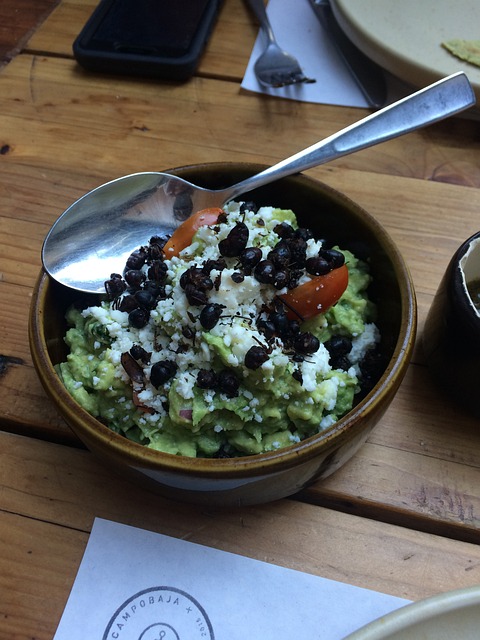In recent years, a growing consumer preference for natural, organic, and non-GMO food options has driven a trend towards tortilla chips free from genetically modified organisms (GMOs). Tortilla chip manufacturers and shops are embracing this non-GMO mission, appealing to health-conscious consumers and promoting sustainability. This shift aligns with broader demands for wholesome snacks, high-quality ingredients, and ethical production methods, fostering trust and loyalty among patrons. Shops offering outdoor seating areas further enhance the customer experience, combining authentic tastes with modern amenities in a bustling landscape. This non-GMO mission positions these establishments as innovators, reshaping the food industry and meeting contemporary consumer preferences.
In today’s health-conscious landscape, non-GMO tortilla chips are on a mission to redefine snacking. This trend extends beyond the kitchen, with tortilla chip shops embracing outdoor seating to create vibrant, inviting spaces. These establishments aren’t just snack stops; they’re community gathering spots that blend delicious, natural products with sustainable practices. From rising demand for healthy snacks to innovative business opportunities and eco-friendly packaging, this article explores the rise of non-GMO tortilla chips and their impact on the food industry.
- The Rise of Non-GMO Tortilla Chips
- – Exploring the demand for natural and healthy snacks
- – Benefits of Non-GMO products: A focus on quality and safety
- – How these chips are reshaping the food industry
The Rise of Non-GMO Tortilla Chips

In recent years, there’s been a notable shift in consumer preferences towards more natural and organic food options, including non-GMO tortilla chips. This trend is driven by increasing health consciousness and a growing demand for environmentally friendly products. Non-GMO tortilla chips are not only free from genetically modified organisms (GMOs), but they also often use sustainable farming practices, ensuring a healthier planet.
Many tortilla chip manufacturers have embraced this mission to provide non-GMO chips, appealing to health-conscious consumers. By avoiding GMOs and adopting eco-friendly farming methods, these businesses contribute to a more transparent and responsible food industry. This shift not only benefits individual health but also supports a broader effort to promote biodiversity and preserve agricultural landscapes.
– Exploring the demand for natural and healthy snacks

In today’s health-conscious world, there’s a growing demand for natural and wholesome snacks that cater to consumers’ desires for both taste and nutritional value. Among these, non-GMO tortilla chips stand out as a popular choice, aligning with the mission to offer healthier alternatives without compromising on flavor. This shift towards natural snacks is driven by an increasing awareness of ingredient origins and their impact on health, prompting folks to seek out products that are free from genetically modified organisms (GMOs).
Tortilla chip shops that prioritize using non-GMO ingredients in their recipes are responding to this demand. By embracing a mission to provide healthier options, these establishments not only cater to health-conscious consumers but also contribute to a broader movement toward more sustainable and transparent food production. Outdoor seating areas allow customers to enjoy these natural snacks while soaking up some fresh air, further enhancing the appeal of such establishments in today’s bustling landscape.
– Benefits of Non-GMO products: A focus on quality and safety

Many consumers are increasingly conscious of the impact their food choices have on both their health and the environment. This trend has led to a growing demand for Non-GMO (Non-Genetically Modified Organism) products, including tortilla chips. When a restaurant or shop offers Non-GMO tortilla chips as part of its menu or stock, it sends a strong message about its commitment to quality and safety.
The use of Non-GMO ingredients ensures that the chips are free from artificial modifications, which can sometimes lead to potential health risks and environmental concerns. By choosing Non-GMO tortilla chips, businesses like tortilla chip shops with outdoor seating contribute to a sustainable food system. This mission aligns with the broader consumer shift towards natural, organic, and locally sourced foods, fostering trust and loyalty among patrons who prioritize both taste and ethical consumption.
– How these chips are reshaping the food industry

In today’s competitive food landscape, tortilla chip shops with outdoor seating are reshaping the industry by offering a unique blend of authentic flavors and modern amenities. These establishments have embraced the trend of health-conscious consumers, incorporating non-GMO tortilla chips into their menus to cater to those seeking natural, high-quality options. The use of non-GMO ingredients not only appeals to health-focused patrons but also aligns with the growing demand for environmentally sustainable practices in food production.
Moreover, the outdoor seating areas create a welcoming atmosphere, encouraging patrons to linger over meals and fostering a sense of community. This shift towards al fresco dining is part of a broader mission to enhance the overall dining experience, making it more accessible, enjoyable, and aligned with modern lifestyles. As tortilla chip shops continue to innovate, their impact on the food industry will only grow, reshaping preferences and expectations for years to come.
As we’ve explored, the demand for natural, healthy snacks like non-GMO tortilla chips is on the rise. These chips aren’t just a trend; they represent a shift in consumer priorities towards quality and safety. By choosing non-GMO products, folks are supporting a more sustainable food industry and, in turn, fostering a mission to revolutionize snacking. Whether enjoyed at home or in a bustling outdoor setting, these tortilla chips offer a delightful dance of flavor with every bite, leaving a lasting impression that underscores their significance in today’s culinary landscape.
